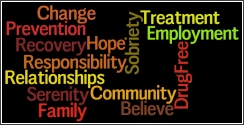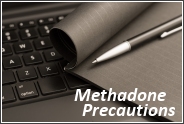 An article was brought to our attention by Dr. Dana Jane Saltzman, a New York City physician who specializes in the treatment of opioid addiction. Dr. Saltzman uses suboxone in her private practice to help those seeking recovery from a severe opioid habit.
An article was brought to our attention by Dr. Dana Jane Saltzman, a New York City physician who specializes in the treatment of opioid addiction. Dr. Saltzman uses suboxone in her private practice to help those seeking recovery from a severe opioid habit.
The article was posted in The Village Voice and attempted to depict the duality of opioid replacement therapies. This duality stems from the highly therapeutic & legitimate uses of suboxone (buprenorphine) contrasted against the attempts of some addicts to create a black market cottage industry with the medication selling it illegally online via Craigslist, Facebook, and other social media.
In the world of medicine and addiction treatment, selling suboxone is certainly criminal, and also behavior characteristic of someone who is not grounded in recovery. Many medical & clinical treatment professionals across the country have endeavored for decades to provide safe, effective treatment to suffering addicts. When FDA-approved opioid treatment medications are misdirected and sold on the black market, all varieties of abuse and exploitation occur ending in overdoses and a deepening of damaging social stigma about medications such as suboxone and methadone.
The Village Voice article plays it straight up the middle with perhaps some emphasis on the growing underground market for suboxone targeted to those who want to bypass the cost or inconvenience of signing on with a suboxone-approved physician.
Individuals who attempt to treat their own addiction with opioid replacement therapy are going to fail a high percentage of times. First, most have no medical basis for understanding the complex nature of opioid addiction in the brain, and they can even deepen their addiction through the inappropriate use of opioid replacements. Addicts often go with what feels right opting for their own intuition as opposed to following proven best practice protocols like those employed in structured treatment programs supervised by suboxone-approved doctors.
Addicts who treat themselves with street suboxone or methadone are also completely missing the counseling component of recovery which addresses the underlying psychological factors that drive addiction. Taking street suboxone without counseling is akin to taking diabetes medication while eating doughnuts. In other words, the individual makes their complicated dilemma even worse.
There are some generic equivalents of suboxone in development which may make opioid replacement therapy more accessible to the larger population. Suboxone and methadone have a definite place in addiction treatment. It is critical however that early recovering addicts receive quality counseling so that they can better understand how to cope with relapse patterns and develop the skills necessary to successfully manage the disease of addiction. Addicts treating themselves with medications acquired on the street will remain stuck in a vicious cycle of addiction.
True recovery requires humility and commitment to higher principles. Chasing shortcuts to recovery creates more pain and wastes valuable time that would be better invested in real solutions.

 Follow
Follow

 To be curious is a basic part of human nature. We live each day naturally drawn to things which interest us, which feel good physically or emotionally, or which might incite some curious inclination down inside of us. It is literally wired into the human DNA to be inquisitive and to seek new experiences.
To be curious is a basic part of human nature. We live each day naturally drawn to things which interest us, which feel good physically or emotionally, or which might incite some curious inclination down inside of us. It is literally wired into the human DNA to be inquisitive and to seek new experiences. Dr. Jana Burson made a recent post about the newly FDA-approved medication for treating opioid dependence called
Dr. Jana Burson made a recent post about the newly FDA-approved medication for treating opioid dependence called  Recovery is for everyone and anyone with a genuine desire for change. Treatment in a methadone program offers the potential for change, and a new path which can lead to a much improved life.
Recovery is for everyone and anyone with a genuine desire for change. Treatment in a methadone program offers the potential for change, and a new path which can lead to a much improved life. If you are currently a client in a methadone clinic, then you have most likely heard treatment staff emphasize the importance of safety with methadone and the necessity of carefully securing take home methadone doses. Methadone is a powerful medication that is tremendously helpful to recovering individuals. It is also potentially lethal in the wrong hands and consequently must be deliberately safeguarded.
If you are currently a client in a methadone clinic, then you have most likely heard treatment staff emphasize the importance of safety with methadone and the necessity of carefully securing take home methadone doses. Methadone is a powerful medication that is tremendously helpful to recovering individuals. It is also potentially lethal in the wrong hands and consequently must be deliberately safeguarded.


